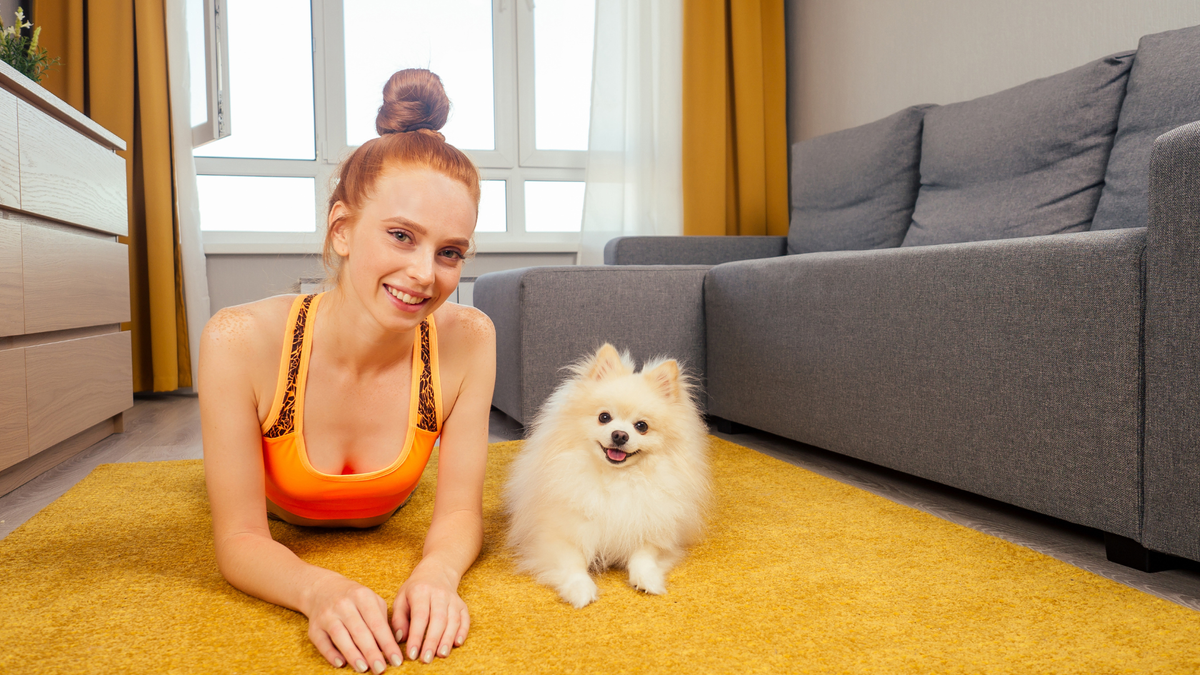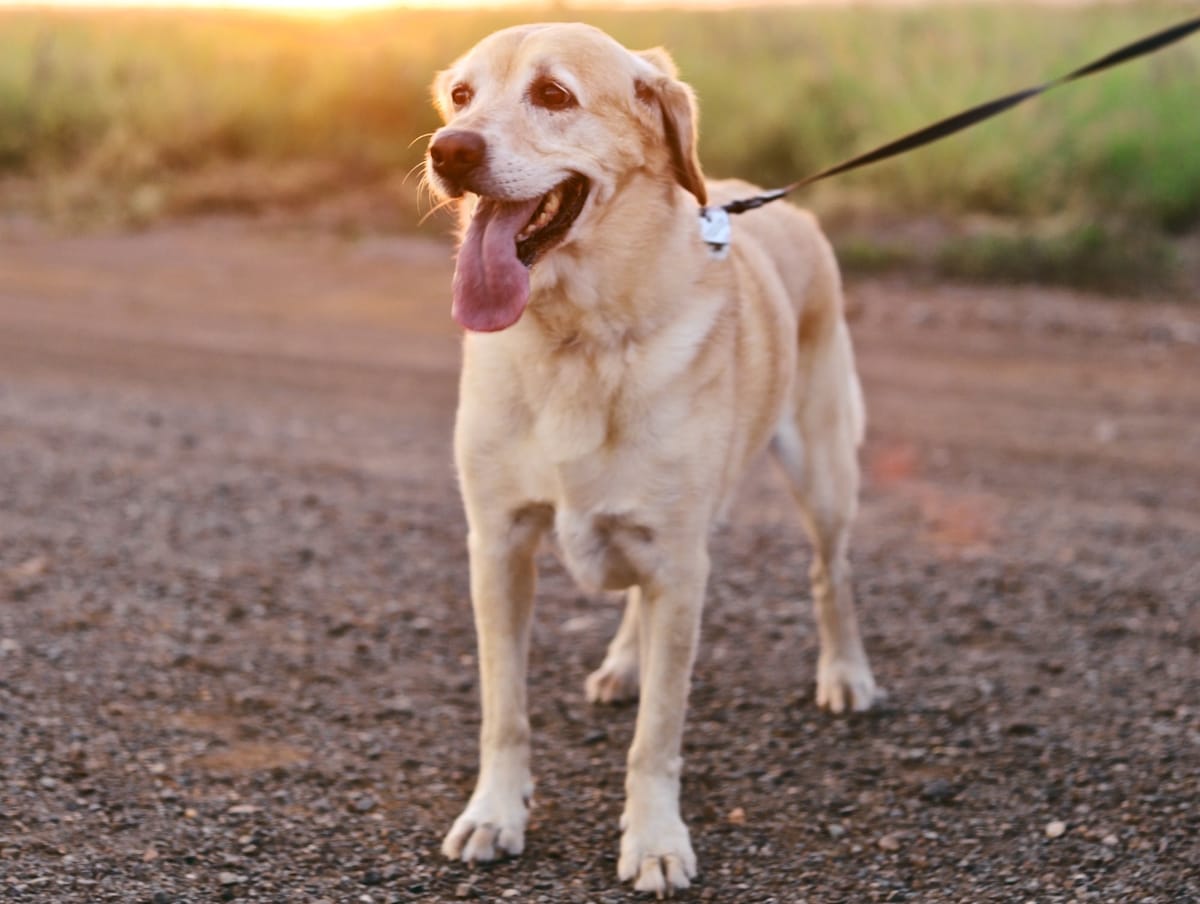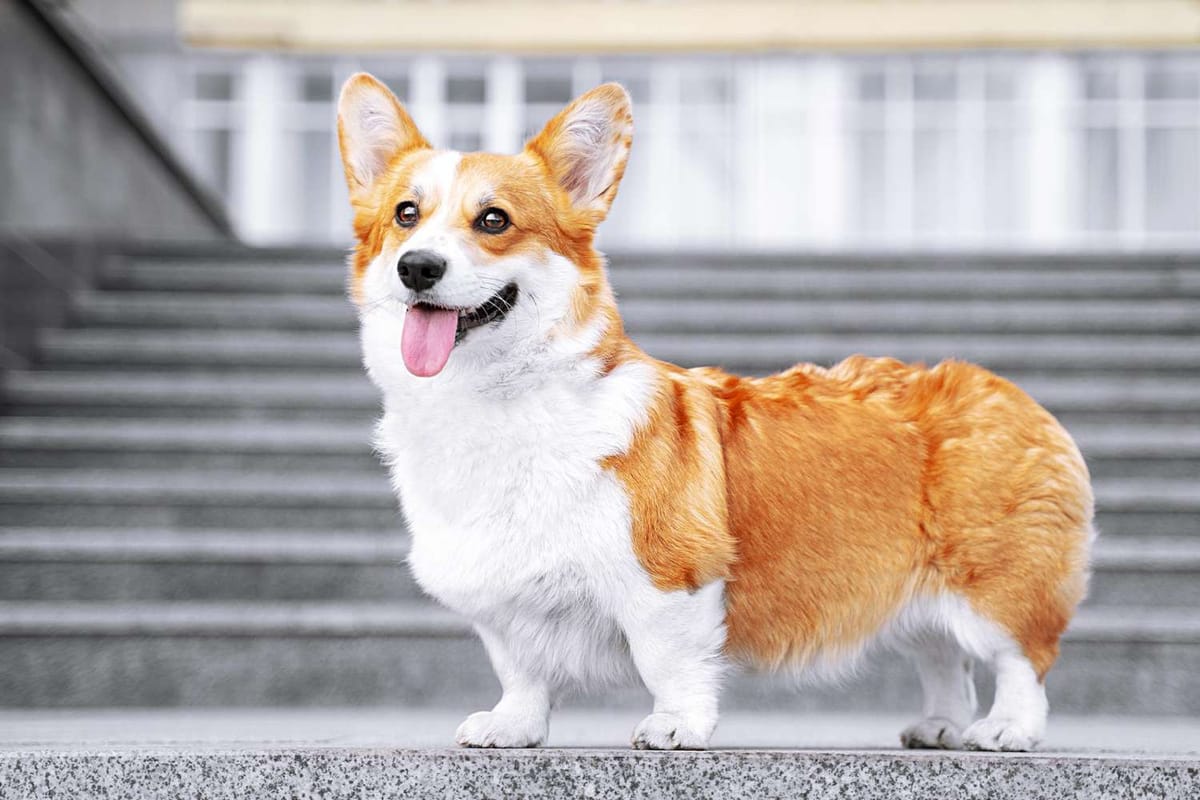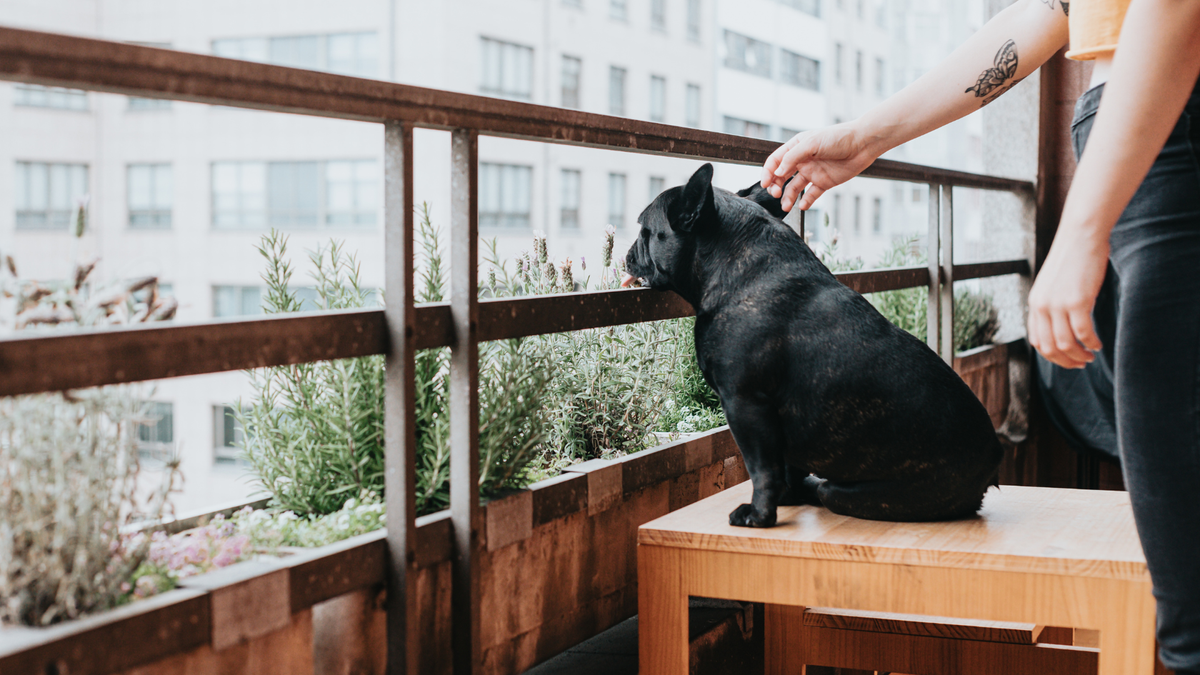Choosing the right dog breed for city living can be a daunting task, especially for those who are new to dog ownership. With so many breeds to choose from, it can be overwhelming to determine which one would be the best fit for your lifestyle and living situation. However, with careful consideration and research, you can find a dog that will thrive in an urban environment.

One of the most important factors to consider when choosing a dog breed for city living is their size. While large breeds may be appealing, they may not be the best fit for a small apartment or limited outdoor space. Smaller breeds, such as Chihuahuas or French Bulldogs, may be a better option for those living in the city. Additionally, breeds that are known for being more active, such as Border Collies or Australian Shepherds, may not be suitable for apartment living without ample exercise and mental stimulation.
Understanding City Living Constraints
Living in a city can be challenging for both humans and their furry companions. When it comes to choosing a dog breed for city living, it is essential to understand the constraints that come with urban living. Here are some important factors to consider:
Space Limitations
One of the most significant concerns for city dwellers is space limitations. Apartments and houses in urban areas are often smaller than those in suburban or rural areas. Therefore, it is crucial to choose a dog breed that can adapt to a smaller living space. Small to medium-sized breeds like Pugs, French Bulldogs, and Boston Terriers are excellent choices for city living.
Noise Considerations
Another essential factor to consider when choosing a dog breed for city living is noise. Cities are noisy places, and some dog breeds may not tolerate the noise level. Breeds like Greyhounds, Basenjis, and Whippets are known for their quiet nature and are perfect for city living.
Neighborhood Regulations
Finally, it is essential to consider neighborhood regulations when choosing a dog breed for city living. Some cities have breed-specific legislation that prohibits certain dog breeds from living in the city limits. For example, Pit Bulls and Rottweilers are often restricted in many cities. It is essential to research the local regulations before choosing a dog breed for city living.
In conclusion, understanding the constraints that come with city living is crucial when choosing a dog breed. By considering factors like space limitations, noise considerations, and neighborhood regulations, you can find a dog that will thrive in an urban environment.
Assessing Your Lifestyle
When choosing a dog breed for city living, it's important to consider your lifestyle and how a dog will fit into it. Here are some key factors to consider:
Activity Levels and Exercise Needs
Different dog breeds have different activity levels and exercise needs. Some breeds, such as the Siberian Husky or Border Collie, require a lot of exercise and may not be suitable for apartment living. Other breeds, such as the Pug or Bulldog, are more low-key and may be better suited for a more sedentary lifestyle. It's important to choose a breed that matches your activity level and exercise habits.
Time Commitment and Presence
Dogs require time and attention, and it's important to consider your work schedule and other commitments when choosing a breed. Some breeds, such as the Bichon Frise or Chihuahua, are more independent and can tolerate being left alone for longer periods of time. Other breeds, such as the Golden Retriever or Labrador Retriever, crave human companionship and may not do well if left alone for extended periods of time.
Family and Pet Dynamics
If you have children or other pets, it's important to choose a breed that will get along with them. Some breeds, such as the Beagle or Boxer, are known for their friendly and playful nature and may be a good fit for families with children. Other breeds, such as the Shar Pei or Akita, may be more reserved or protective and may not do well in a home with young children or other pets.
Overall, it's important to choose a dog breed that matches your lifestyle and needs. By considering factors such as activity level, time commitment, and family and pet dynamics, you can find the perfect companion for city living.
Selecting the Right Size
When it comes to choosing the right dog breed for city living, size is an important factor to consider. Different dog breeds come in different sizes, and each size has its own advantages and disadvantages. Here are some things to keep in mind when selecting the right size for your city lifestyle.
Small Breeds
Small breeds are generally considered the best choice for city living. They are easy to manage, require less space, and are more adaptable to apartment living. Small breeds are also great for people who have busy schedules, as they require less exercise than larger breeds. Some popular small breeds for city living include Chihuahuas, Pomeranians, and French Bulldogs.
Medium Breeds
Medium breeds can also be a good choice for city living, but they require more space and exercise than small breeds. They are generally more active and require more mental stimulation. Some popular medium breeds for city living include Beagles, Cocker Spaniels, and Border Collies.
Large Breeds
Large breeds are not recommended for city living, as they require a lot of space and exercise. They are also more difficult to manage in small apartments and can be a nuisance to neighbors. However, if you have a large home with a yard, a large breed may be a good choice. Some popular large breeds for city living include Golden Retrievers, Labradors, and German Shepherds.
When selecting the right size for your city lifestyle, it's important to consider your living space, your schedule, and your ability to provide the necessary exercise and mental stimulation for your dog. By choosing the right size, you can ensure that your dog will be happy and healthy in your city home.
Considering Breed Temperament
When choosing a dog breed for city living, it's important to consider their temperament. Different breeds have different personalities and behaviors that may or may not be suitable for urban environments. Here are some key factors to consider when evaluating breed temperament:
Adaptability to City Life
Some breeds are better suited to city living than others. Dogs that are adaptable and can thrive in smaller spaces with less exercise may be a better fit for apartment living. Breeds that are known for being high-energy and require a lot of exercise may not be suitable for city life, unless their owners are committed to providing them with ample opportunities for exercise and play.
Social Traits with People and Pets
City dogs need to be comfortable around people and other pets. Breeds that are naturally friendly and sociable may be a better fit for city living. Dogs that are prone to aggression or fearfulness may not be suitable for city environments, where they will encounter a lot of people and other dogs.
Trainability and Obedience Levels
City dogs need to be well-trained and obedient. Breeds that are easy to train and eager to please may be a better fit for city living. Dogs that are stubborn or independent may be more difficult to train and may not be suitable for city environments, where they need to follow rules and commands to ensure their safety and the safety of others.
Overall, it's important to choose a breed that fits your lifestyle and personality. By considering breed temperament, you can find a dog that will thrive in a city environment and bring joy and companionship to your life.
Health and Grooming Needs

Maintenance and Upkeep
When choosing a dog breed for city living, it's important to consider their maintenance and grooming needs. Dogs with long hair or thick coats may require more frequent grooming to prevent matting and keep them cool in warmer weather. Short-haired breeds may shed less, but still require regular brushing to keep their coats healthy and shiny.
Additionally, some breeds may require more frequent trips to the groomer for haircuts or nail trims. It's important to factor in these costs when considering the overall cost of owning a dog in the city.
Common Health Issues in Urban Environments
Living in the city can expose dogs to a variety of health risks, including pollution, crowded living conditions, and exposure to other animals. Certain breeds may be more prone to health issues such as respiratory problems or allergies in urban environments.
It's important to research the specific health risks associated with each breed before making a decision. Regular visits to the vet and preventative care, such as vaccinations and flea/tick prevention, can help keep your dog healthy and happy in the city.
Overall, choosing the right dog breed for city living requires careful consideration of their maintenance and grooming needs, as well as their potential health risks in an urban environment. By doing your research and being prepared, you can find the perfect furry companion for your city lifestyle.
Finding a Reputable Breeder or Shelter
When it comes to choosing the right dog breed for city living, finding a reputable breeder or shelter is essential. Here are some tips on how to find the right one.
Researching Breeders
When looking for a breeder, it's important to do your research. Here are some things to consider:
- Look for breeders who are registered with the American Kennel Club (AKC) or other reputable organizations.
- Check to see if the breeder has any complaints or violations on record with the AKC or other organizations.
- Ask for references from previous customers and follow up with them.
- Visit the breeder's facility to see how the dogs are treated and to ask questions about the breed.
Adoption Options
Adopting a dog from a shelter can be a great option for city dwellers. Here are some things to consider:
- Visit your local shelter to see what dogs are available.
- Ask the shelter staff about the dog's temperament, energy level, and any special needs.
- Consider adopting an older dog, as they may be calmer and more suitable for city living.
- Some shelters offer trial periods to make sure the dog is a good fit for your lifestyle.
By taking the time to find a reputable breeder or shelter, you can ensure that you find the right dog breed for city living and provide a loving home for your furry friend.
Preparing Your Home for a New Dog
Before bringing a new dog into your city apartment, it's important to make sure your home is ready for their arrival. This includes creating a safe space for your new furry friend and ensuring you have all the essential supplies and equipment they will need.
Creating a Safe Space
Dogs need a designated area where they can relax and feel safe. This can be a crate, a bed, or a specific corner of the room. Make sure this area is comfortable and has soft bedding. It's also important to ensure that the space is secure and free of any hazards. This means removing any toxic plants, electrical cords, and small objects that could be swallowed.
Essential Supplies and Equipment
In addition to a safe space, there are several essential supplies and equipment you will need before bringing a new dog into your home. These include:
- Food and water bowls
- High-quality dog food
- Collar and leash
- ID tags with your contact information
- Crate or carrier for transportation
- Toys and chews for mental stimulation
- Cleaning supplies for accidents
It's important to note that not all dog breeds have the same needs. Some may require specific types of food or toys, while others may need a larger crate or more exercise. Research the breed you are interested in to ensure you have all the necessary supplies and equipment to meet their needs.
By creating a safe space and ensuring you have all the essential supplies and equipment, you can prepare your home for a new dog and provide them with a comfortable and happy living environment.
Training and Socialization
Basic Obedience Training
When choosing a dog breed for city living, it is important to consider their trainability. Basic obedience training is essential to ensure your dog is well-behaved and able to navigate the city environment safely. Some breeds, such as the Border Collie and the German Shepherd, are highly trainable and excel in obedience training. Other breeds, such as the Basset Hound and the Afghan Hound, can be more stubborn and difficult to train.
It is recommended to start training your dog from a young age to establish good habits and prevent bad behaviors from developing. Positive reinforcement training methods, such as rewarding good behavior with treats and praise, are effective in teaching your dog obedience commands such as sit, stay, come, and heel.
Socialization Opportunities in the City
Socialization is also an important aspect to consider when choosing a dog breed for city living. Socialization involves exposing your dog to a variety of people, animals, and environments to help them develop good social skills and reduce the risk of aggression or fear towards unfamiliar situations.
City living can provide many opportunities for socialization, such as dog parks, pet-friendly cafes, and obedience classes. It is important to introduce your dog to different environments and situations gradually, and to supervise them during interactions with other dogs and people.
Overall, choosing a breed that is trainable and socializable is key to ensuring a happy and well-adjusted dog in a city environment.
Long-Term Considerations
When choosing a dog breed for city living, it's important to consider the long-term commitment that comes with owning a pet. This includes financial commitment, as well as lifestyle changes and the dog's adaptability to urban environments.
Financial Commitment
Owning a dog is a financial commitment that lasts for the dog's entire life. It's important to consider the cost of food, grooming, veterinary care, and other expenses when choosing a dog breed. Some breeds may require more expensive care than others, so it's important to research the breed's specific needs before making a decision.
In addition to regular expenses, unexpected veterinary bills can arise. It's recommended to set aside a "pet emergency fund" to cover unexpected expenses.
Lifestyle Changes and Dog's Adaptability
City living can be stressful for some dogs, so it's important to choose a breed that can adapt to the urban environment. Dogs that are easily stressed or anxious may not be suitable for city living.
It's also important to consider the owner's lifestyle and how it will affect the dog. Dogs require exercise, attention, and socialization, so owners should be prepared to make time for these activities. Some breeds may require more exercise or attention than others, so it's important to choose a breed that fits the owner's lifestyle.
Overall, choosing the right dog breed for city living requires careful consideration of the long-term commitment involved. By considering the financial commitment and the dog's adaptability to urban environments, owners can make an informed decision that will benefit both themselves and their furry companion.
Conclusion
Choosing the right dog breed for city living requires careful consideration of various factors. By assessing your lifestyle, living conditions, and the unique challenges of urban environments, you can find a companion that fits perfectly into your life. Remember, every dog is an individual, so take the time to research and meet different breeds before making your decision.
FAQs
- Q: Can large dogs live comfortably in apartments?
- Large breeds can adapt to apartment living if they receive adequate exercise and mental stimulation.
- Q: Are there breeds that are less prone to barking?
- Yes, breeds like Basenjis or Whippets are known for their quieter nature.
- Q: Do all small breeds require less exercise?
- While small breeds generally need less physical activity, individual exercise needs can vary.
- Q: Which breeds are best for allergy sufferers?
- Breeds such as Poodles, Bichon Frises, and Portuguese Water Dogs are often recommended for allergy sufferers.
- Q: Is it better to adopt or buy a dog for city living?
- Adoption is recommended as many shelter dogs are well-suited to urban environments and are in need of loving homes.
More articles about city living with your dog:





